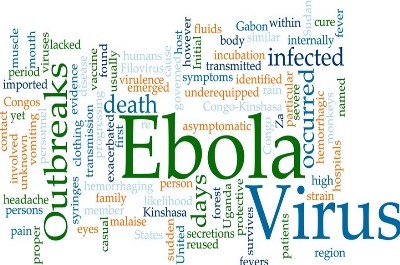Curbing Ebola Spread: The Role Of Health Workers
The growing transmission rate and Ebola-associated deaths among health staffs (doctors, CHOs, nurses, porters and cleaners for example) concur with scientific evidence linking greater exposure to Ebola with health care settings. As efforts on the sensitization on the Ebola scourge is being scaled up primarily to demystify the initial perceptions on the disease as well as promoting awareness on personal and community-wide measures to curb the spread, it is but important that health workers be targeted in this drive to remind and/or educate them on their roles to minimize the spread.
It is no secret that health facilities are facing a logistical conundrum in the control of Ebola and other infections. As a result of the inadequate or lack of basic gloves, some health workers are forced to use a pair of gloves on several patients as opposed to changing them between patients. This facilitates cross-infection between patients. The improper use of personal protective equipment (PPE) such as gloves, surgical gowns and masks for example, also expose health staffs and their patients to infections including Ebola. A health staff with gloves on would touch almost everything within his reach and answering or making calls with his/her mobile phone with soiled or infected gloves. Upon removing them, this staff will in turn touch those surfaces and mobile phones that are potentially harbouring the germs-leading to the contraction of the Ebola virus and other infections. These are some of the many ways health staffs are infecting themselves, their families and their communities.
There is growing fear within the populace that, going to the health facility to report headaches, fever and other symptoms akin to Ebola features leaves you to be tagged as “Ebola suspect”. Sick persons are now resorting to meeting health workers in their homes for treatment. Whilst this means a “business boom” for some health staffs, they are however exposing themselves, their families and communities to the Ebola virus as they lack the facilities to determine whether they are managing an Ebola case. This has been strongly associated with the rapid spread of the disease among health staffs. To be safer therefore, nurses and other staffs seeing patients at home should cease this practice, especially when the symptoms are akin to those of Ebola.
It is observed in our society that parenteral administration of drugs is a popular practice. The sick perceives a treatment as good when an injection or drip is given. For the health workers, it becomes a way of justifying why more should be paid. Injections (IM/IV) and intravenous infusions have greater transmission rate to the health worker than ordinary contact, especially in the absence of gloves. It is but prudent at this time that, the sensitization drive includes messages discouraging the administration of drugs via injection or drips; except where absolutely necessary.
The health workers play a significant role in the transmission of the virus and it’s a pity that many have succumbed to the disease. Whereas an individual infected with the virus infects mostly his immediate family, a health worker carrying the Ebola virus can infect different families and communities. To our practising Doctors, CHOs, Nurses and other staffs, it is high time necessary precautions be strictly adhered to in your duty of care to save your lives, those of your families and the Sierra Leone Community. The author appreciate the laudable efforts of the MOHS and its partners in the fight against the outbreak, and appeals that friends of Sierra Leone in the private sector, foreign governments and donor institutions, as well as Sierra Leoneans abroad and at home to continue their financial and moral support that will facilitate the creation of an enabling environment in infection control in our hospitals and clinics in order to enhance the survival of our health workers and by extension, the people of Sierra Leone.
Author: Alhassan Fouard Kanu, Ministry of Health & Sanitation
Stay with Sierra Express Media, for your trusted place in news!
© 2014, https:. All rights reserved.






